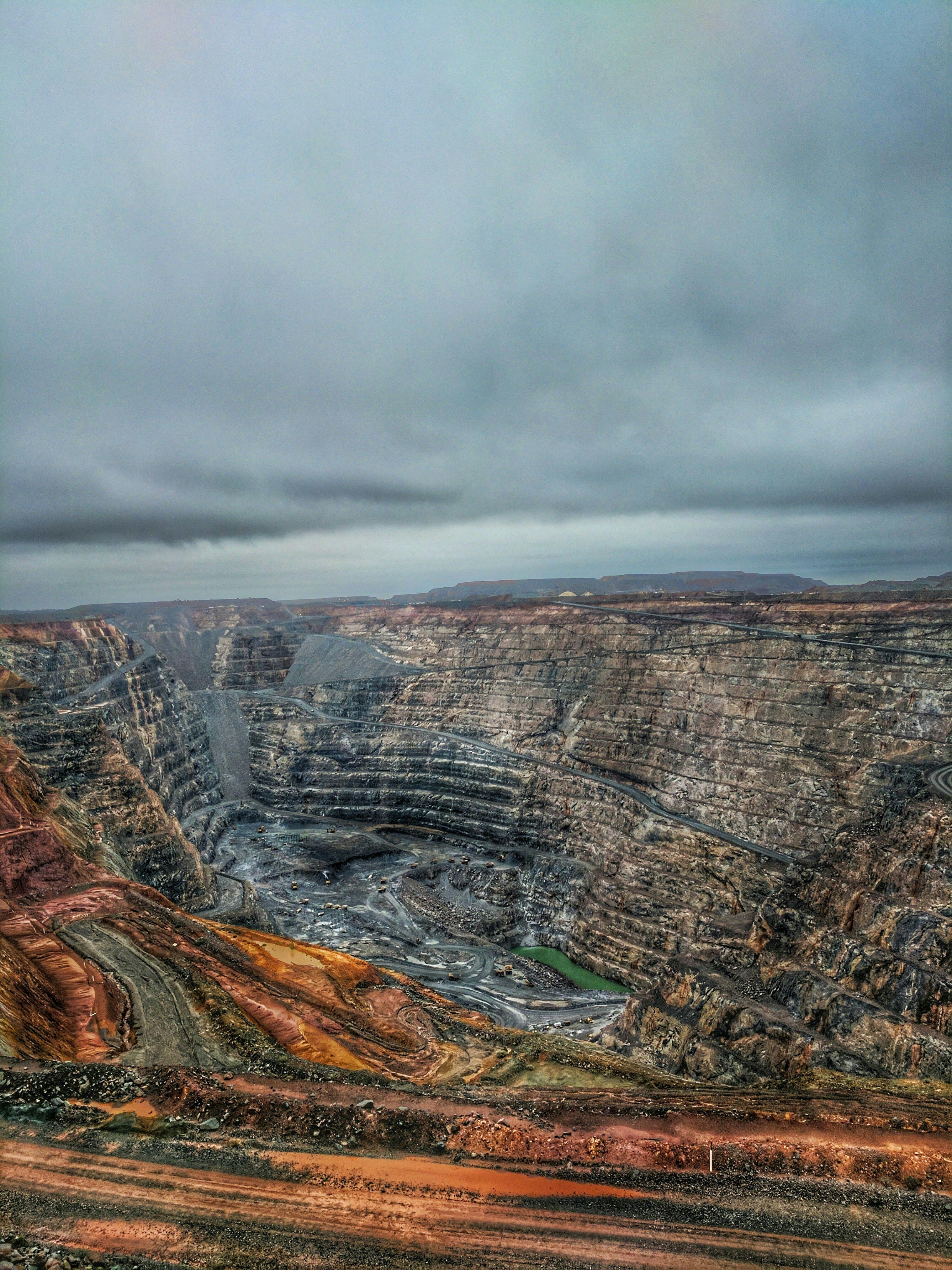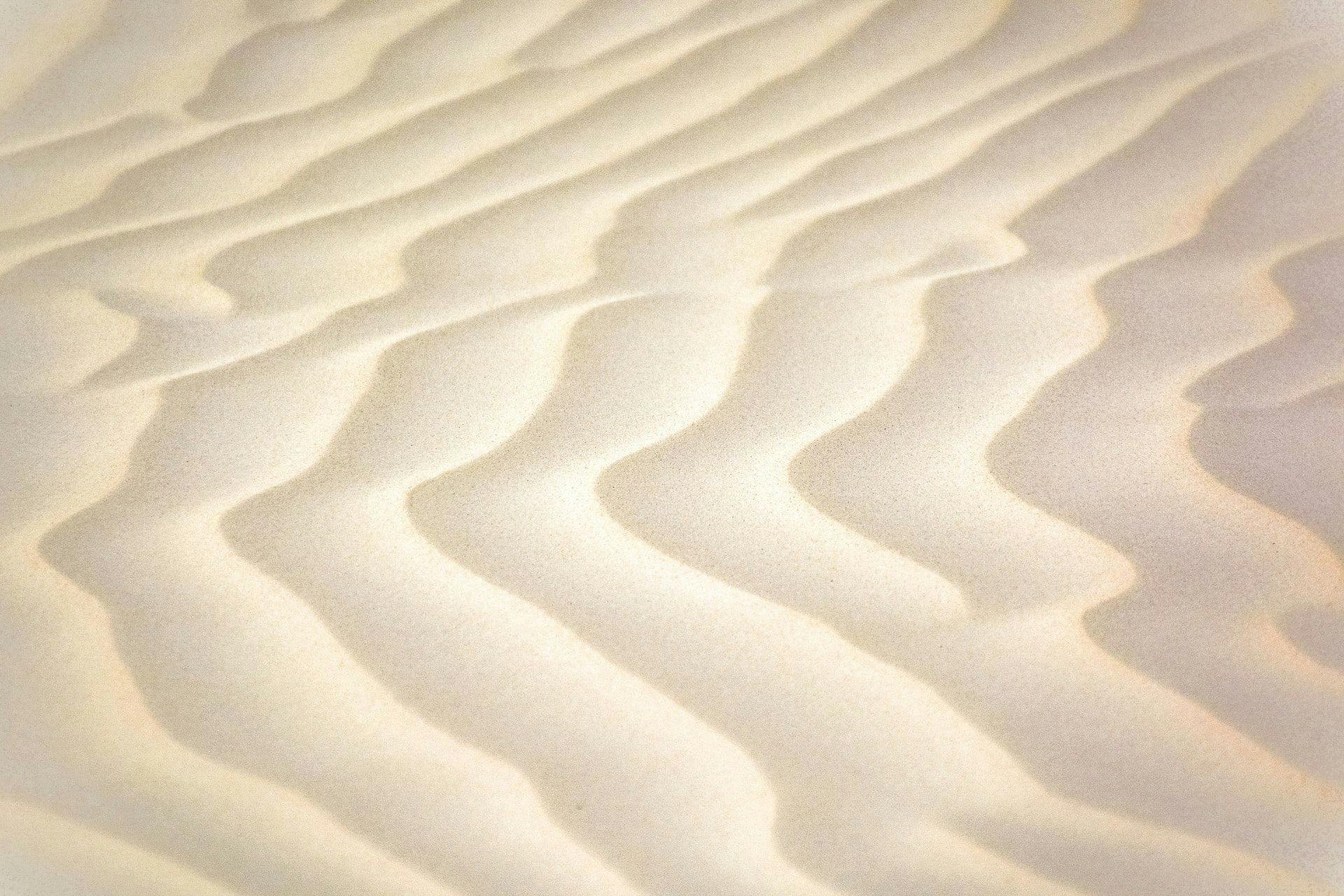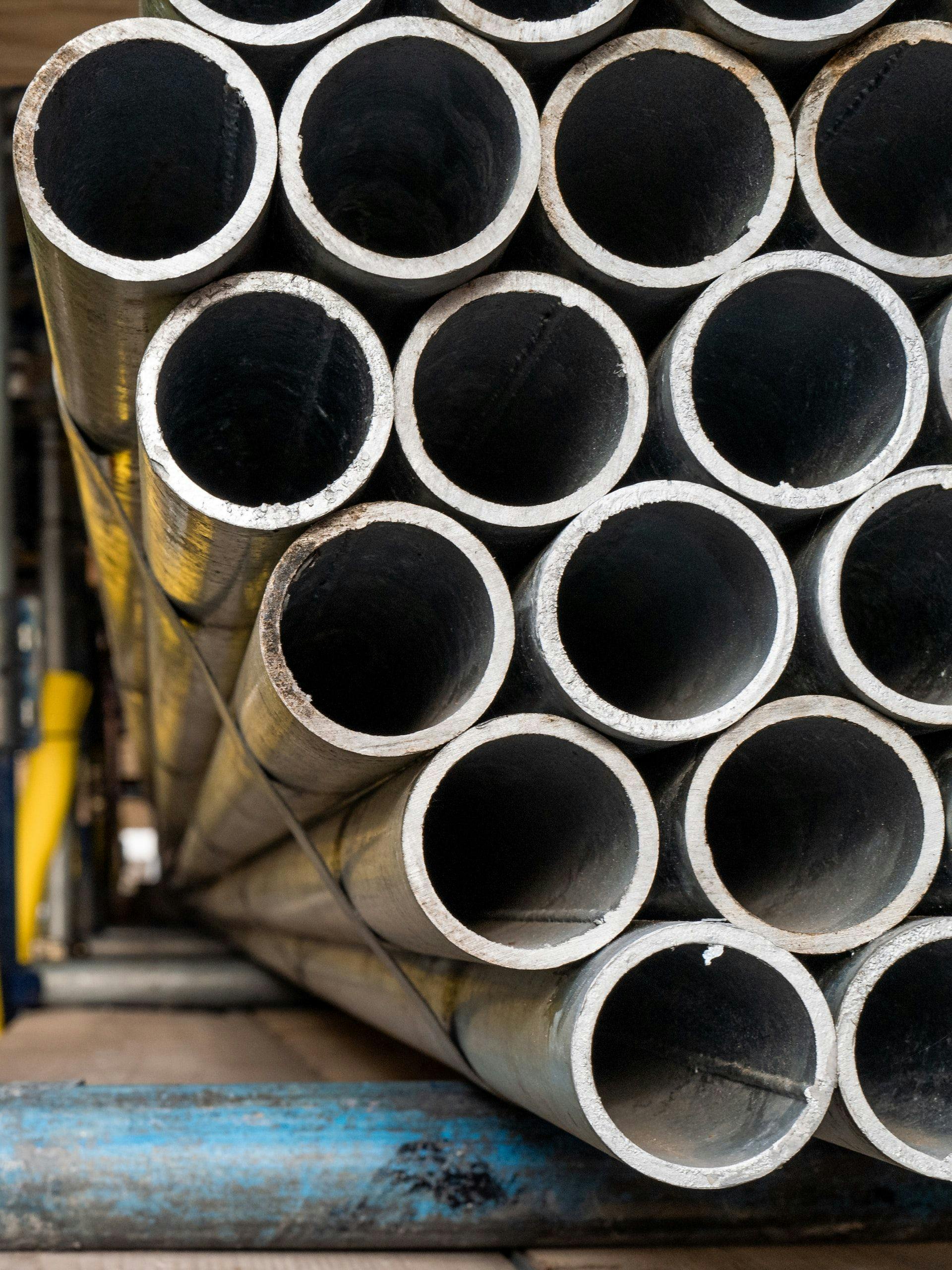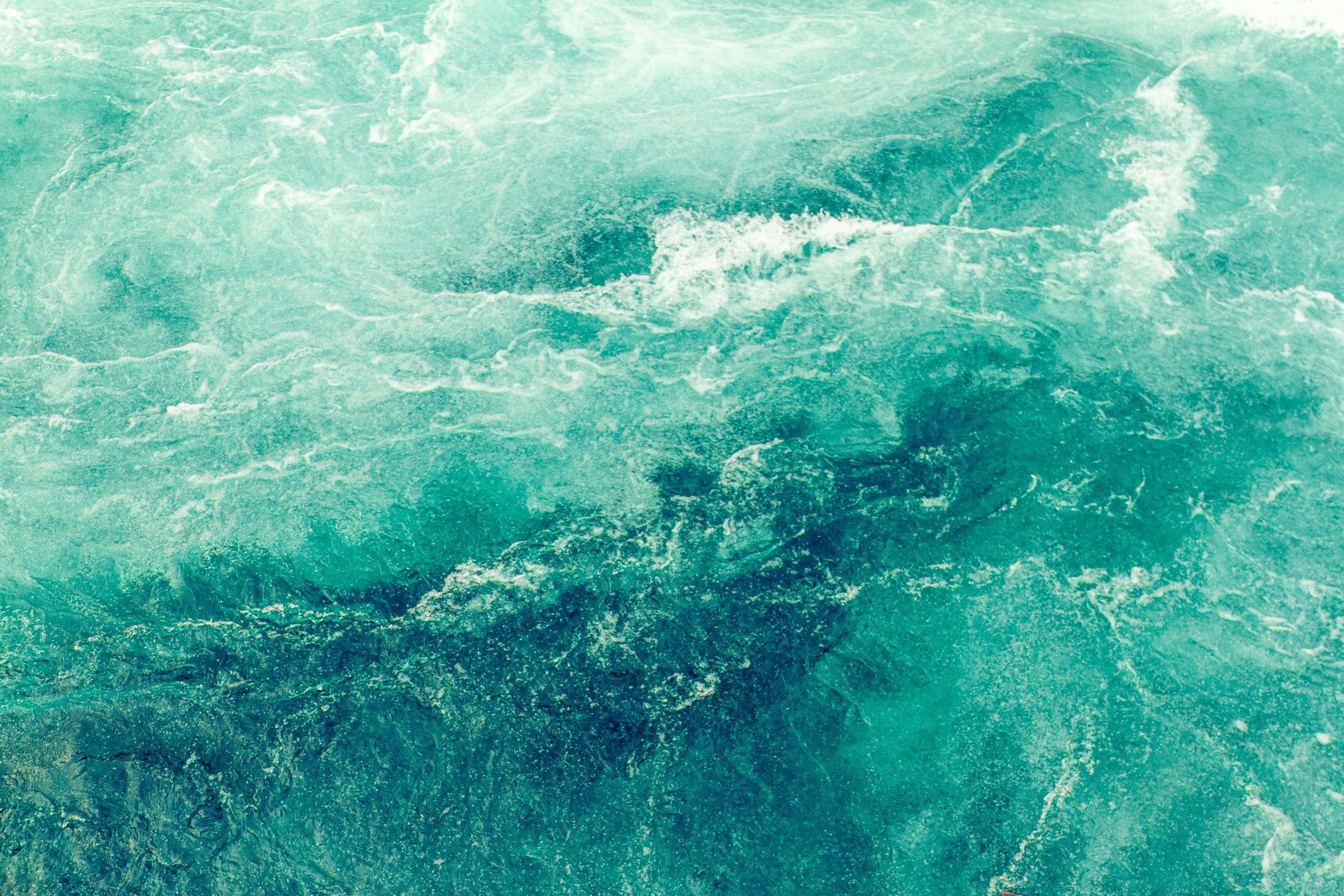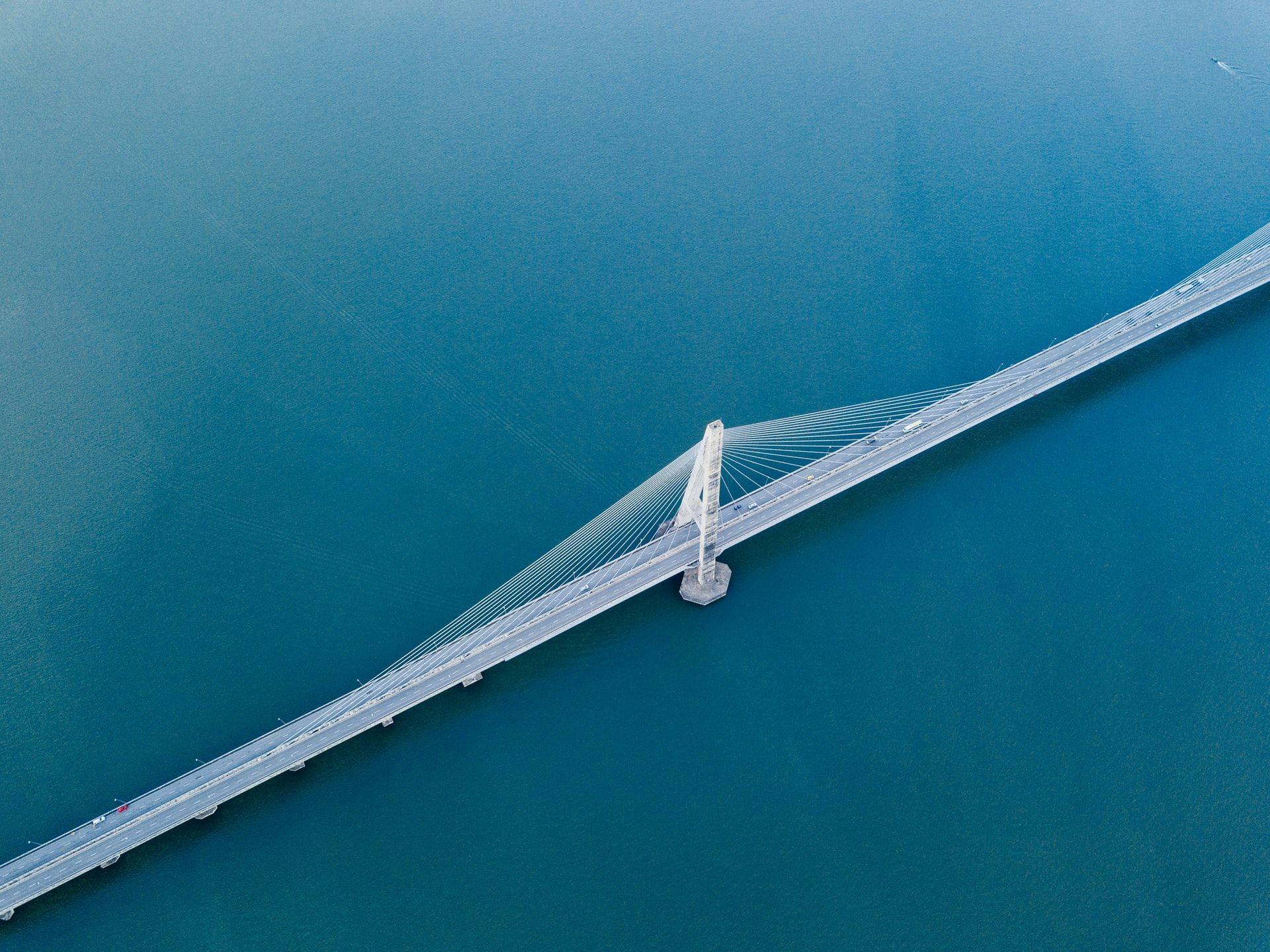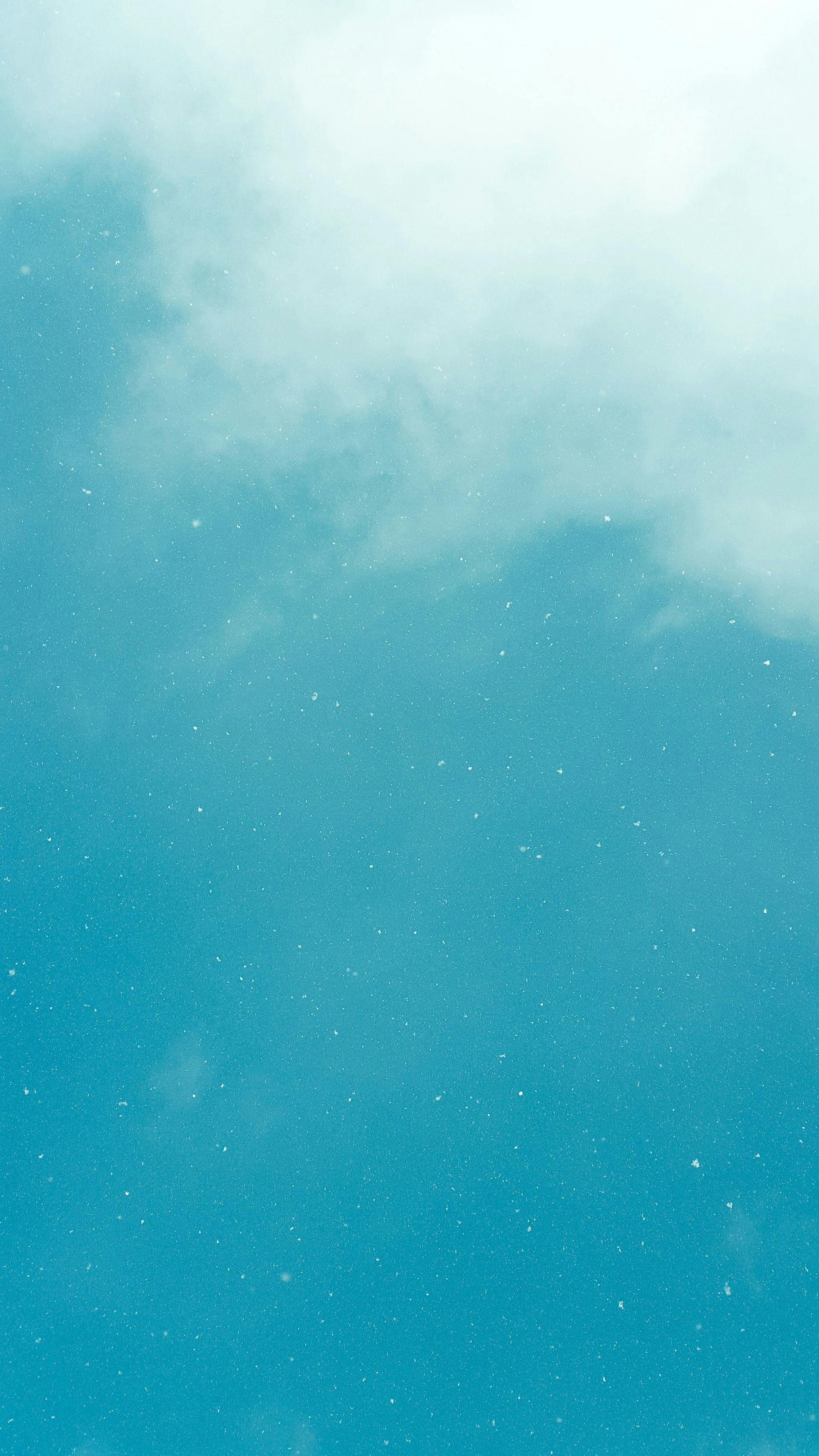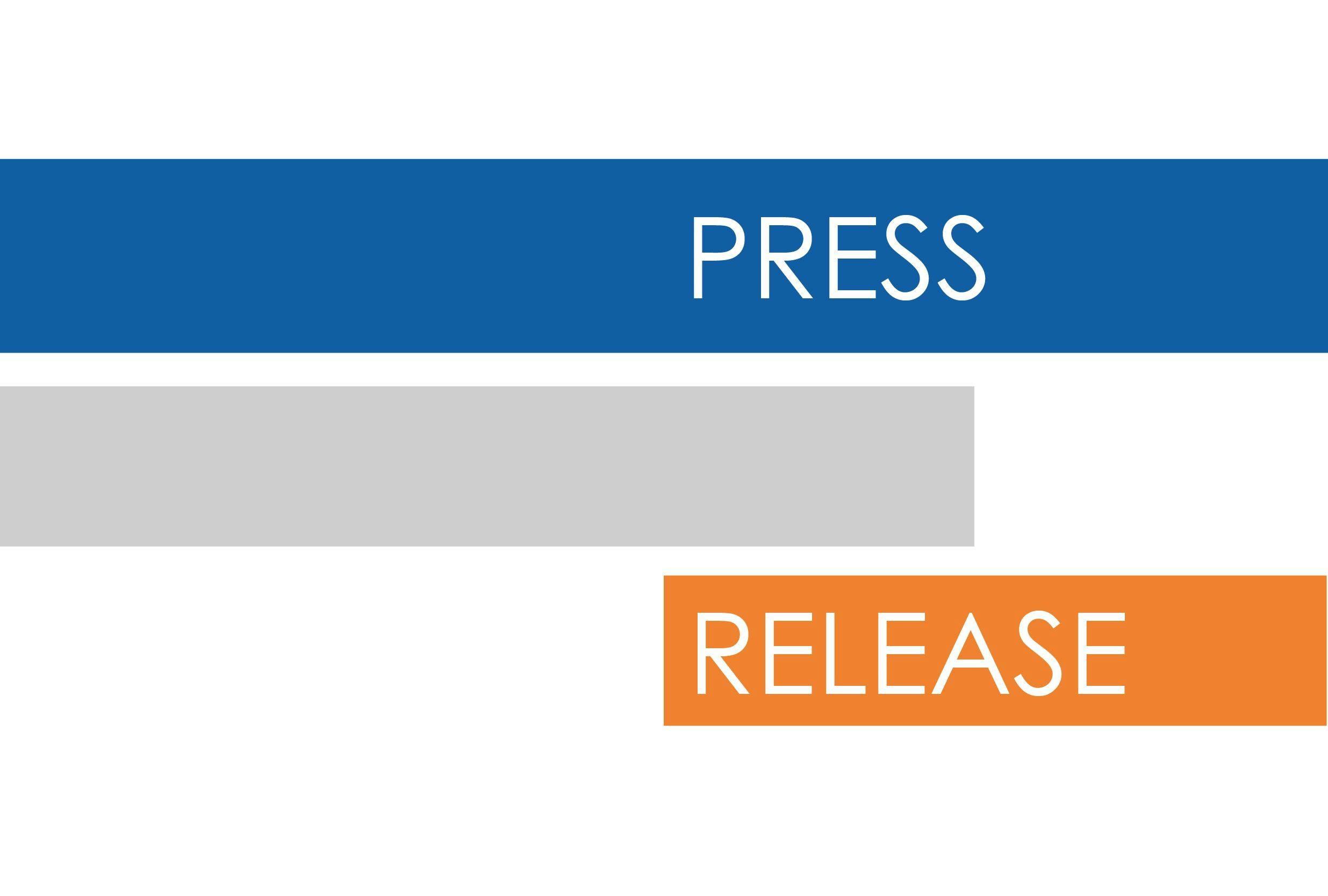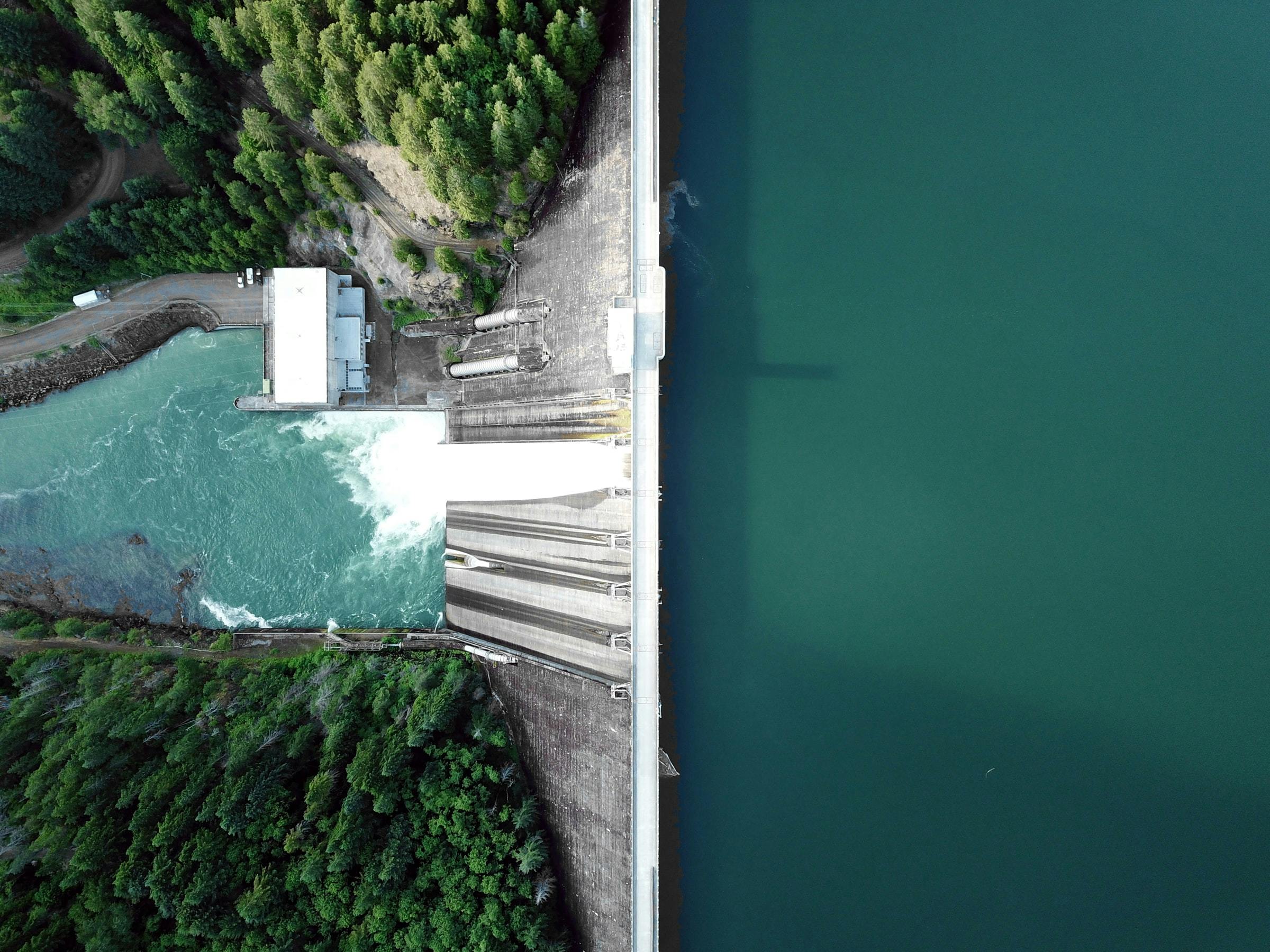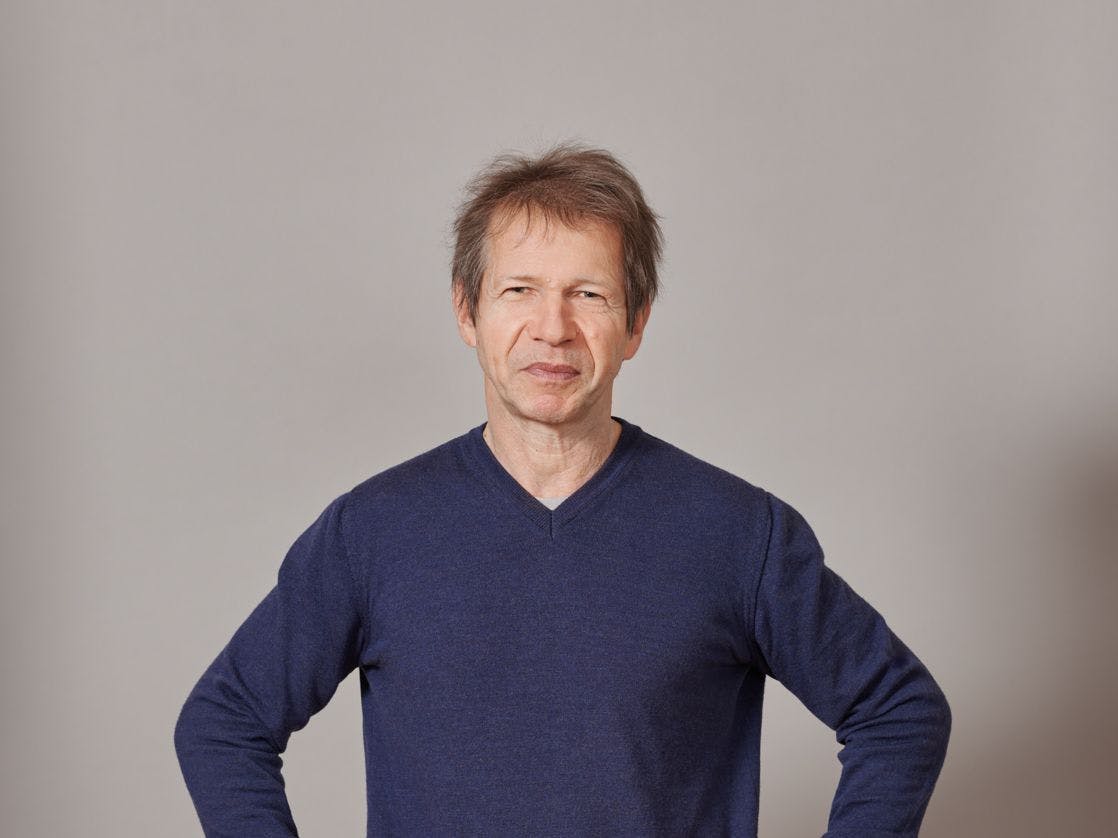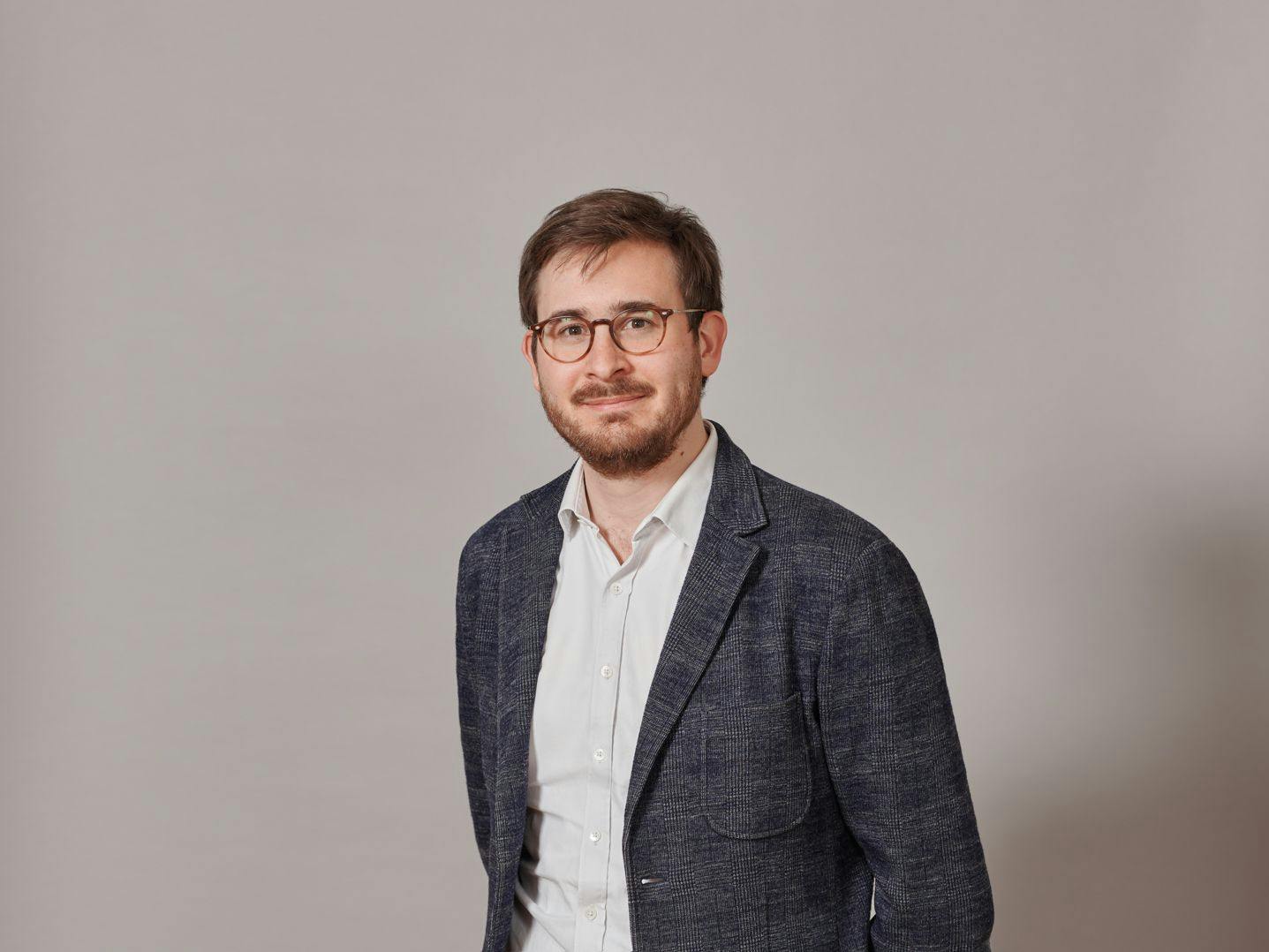OCARA methodological guide
Updated in May 2023.
Please note that the application tool freely available on our website is a "general public" tool, intended to be universal and exhaustive. We use a different, more ergonomic and dynamic version of this tool in our support services.
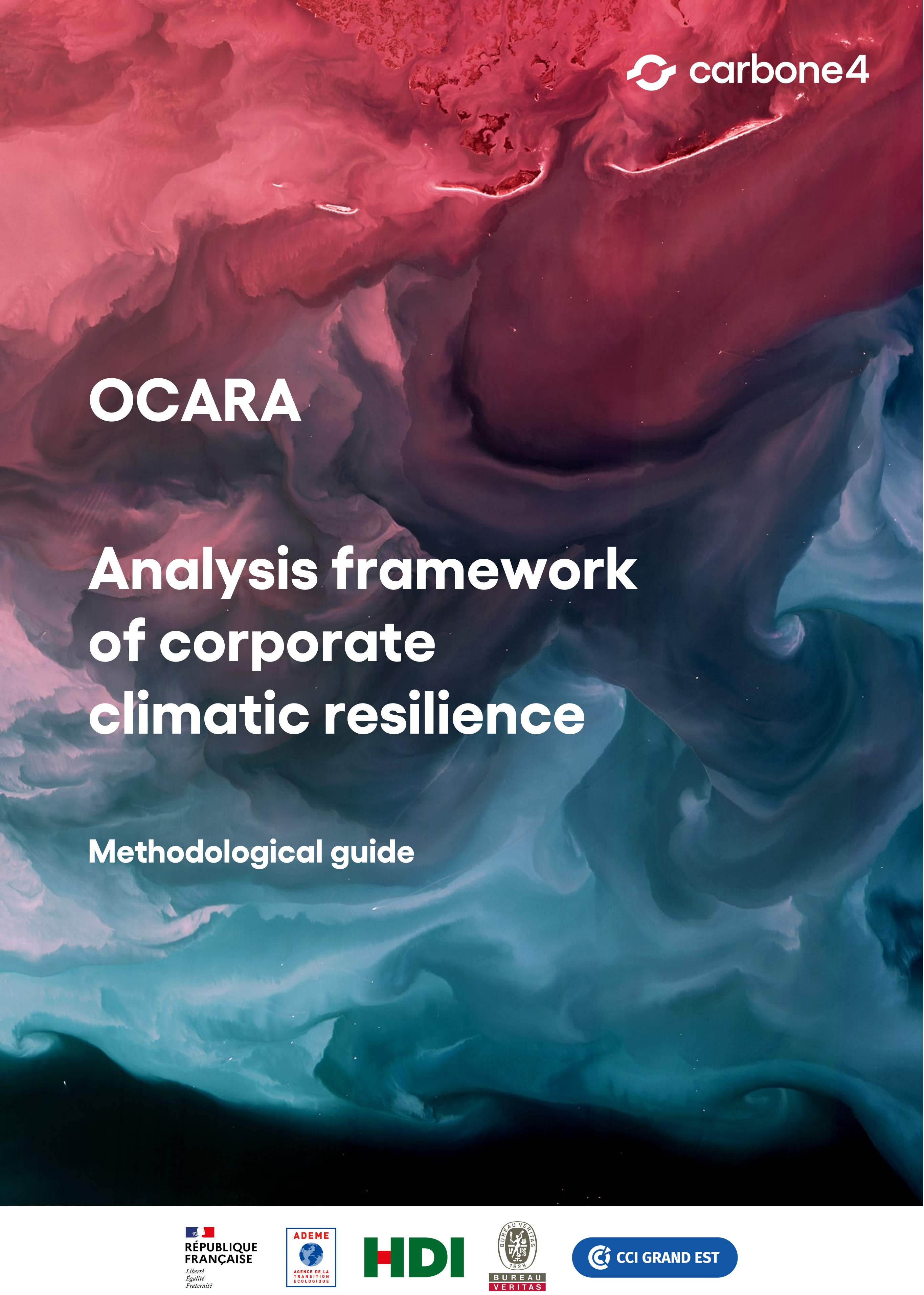
Foreword
Regarding OCARA
The objective of OCARA is to assist economic actors to be resilient in the face of already existing and future climatic impacts.
This method has been named OCARA for "Operational Climate Adaptation and Resilience Assessment".
This method is structured in three steps: (1) the analysis of current resilience, (2) the analysis of future climate hazards and impact scenarios, (3) the developement of adaptation and resilience plans.
The present guide mainly details step 1, since it is common to all companies that wish to follow the method. Steps 2 and 3 depend on the results of step 1, and must be contextualised for each economic actor. That is why only the major principles are described for steps 2 and 3.
Lastly, this method is the first of its kind and is thus destined to be progressively enriched by feedback from experience. The method will be regularly updated to keep abreast of advances.
Regarding the available documents
The deliverables of the project include the following aimed at the general public:
- the present methodological guide;
- an Excel application tool and its user manual;
- a training programme.
This methodological guide presents an analysis framework that enables companies to perceive their level of resilience confronted by the impacts of climate change. It has been designed for an aware public, meaning people having knowledge regarding climate change and the major principles of risk analysis. The last update was performed on May 2023. More information is available on https://www.carbone4.com/projet-ocara.
Summary
The climates we know are undergoing change: the intensity of floods and the frequency of wildfires and heatwaves are increasing; rainfall and drought cycles are becoming more erratic. Companies must therefore anticipate these changes and ensure they are prepared to withstand these new climatic impacts.
Faced with the lack of standards for analysing these physical risks, Carbone 4 has launched the OCARA project. Developed In partnership with the Ademe, HDI Global France, Bureau Veritas and the CCI Grand Est, OCARA is the first reference analysis framework focusing on the resilience of companies to climate change.
OCARA provides a model and a tool for carrying out one's own diagnostic of climatic resilience and starting an adaptation process. OCARA is structured in 3 key steps. The analysis of climatic resilience (Step 1) assesses the level of the company's resilience to the current climate. Linked to Step 2 (climatic impact forecasts and scenarios), the approach permits carrying out a diagnosis of the physical risks that is both holistic and systemic. Step 3 (resilience plan) permits identifying and planning the trajectories of adaptation.
OCARA permits understanding, identifying and ranking weak and strong signals of climate change on the basis of a holistic vision of climatic impacts on the company’s entire value chain. It also provides paths of action to build an adaptation plan to strengthen the resilience of the company as a whole. It provides operational results on the concrete risks of climate change for the company: the processes most prone to risk, the most material impacts, the most resilient elements, the critical hazards, and the paths of action.
OCARA contributes several methodological advances: an operational approach with access by process in 3 steps, a nomenclature of the processes to be assessed (120 processes distributed in 3 scopes of dependence), a list of climate hazards generating potential impacts, and standardised assessment metrics used to aggregate information and compare results. OCARA provides a concrete interpretation of concepts linked to adaptation and resource applications adapted to companies.
Like the Carbon Balance method, the OCARA method is intended for direct use by companies and is enriched progressively through experience and deepening knowledge. To help spread the information, this methodological guide and an application tool are available for free download and follow-ups are already planned.
---
Authors
Carbone 4 project team: Violaine Lepousez, Clément Mallet, Maxime Aboukrat, Théo Girard, Justine Mossé, Jean-Marc Jancovici.
Contact
Violaine Lepousez, leader of the Carbone 4 Physical Risks and Adaptation Team
violaine.lepousez@carbone4.com
Financial partners
ADEME, HDI Global France, Bureau Veritas, CCI Grand-Est.
Expert committee
Céline Philips and Christophe Barel (ADEME), Marina Pitrel and Clémence Ricochon (Agence de l’eau Rhin-Meuse), Christophe Besnier (Bureau Veritas), Amandine Amat and Frédéric Papelard (CCI Grand Est), Marie Colin and Fabien Palhol (CEREMA), Jean-Paul Etaix and Raphaël Papin (HDI Global France), Vivian Depoues (I4CE), Hervé le Treut (Institut Pierre-Simon-Laplace), Félix Lallemand (docteur en écologie du Muséum National d'Histoire Naturelle).
Beta-test companies of the method
Atalu, Arthur Metz, Jus de Fruits d’Alsace, Lacoste, Lucart, Poeppelmann, Saint Gobain, Séché and Siemens.
Acknowledgements
Carbone 4 thanks the financial partners of the project, the members of the expert committee, the beta-test companies and the proof-readers of the present guide.

